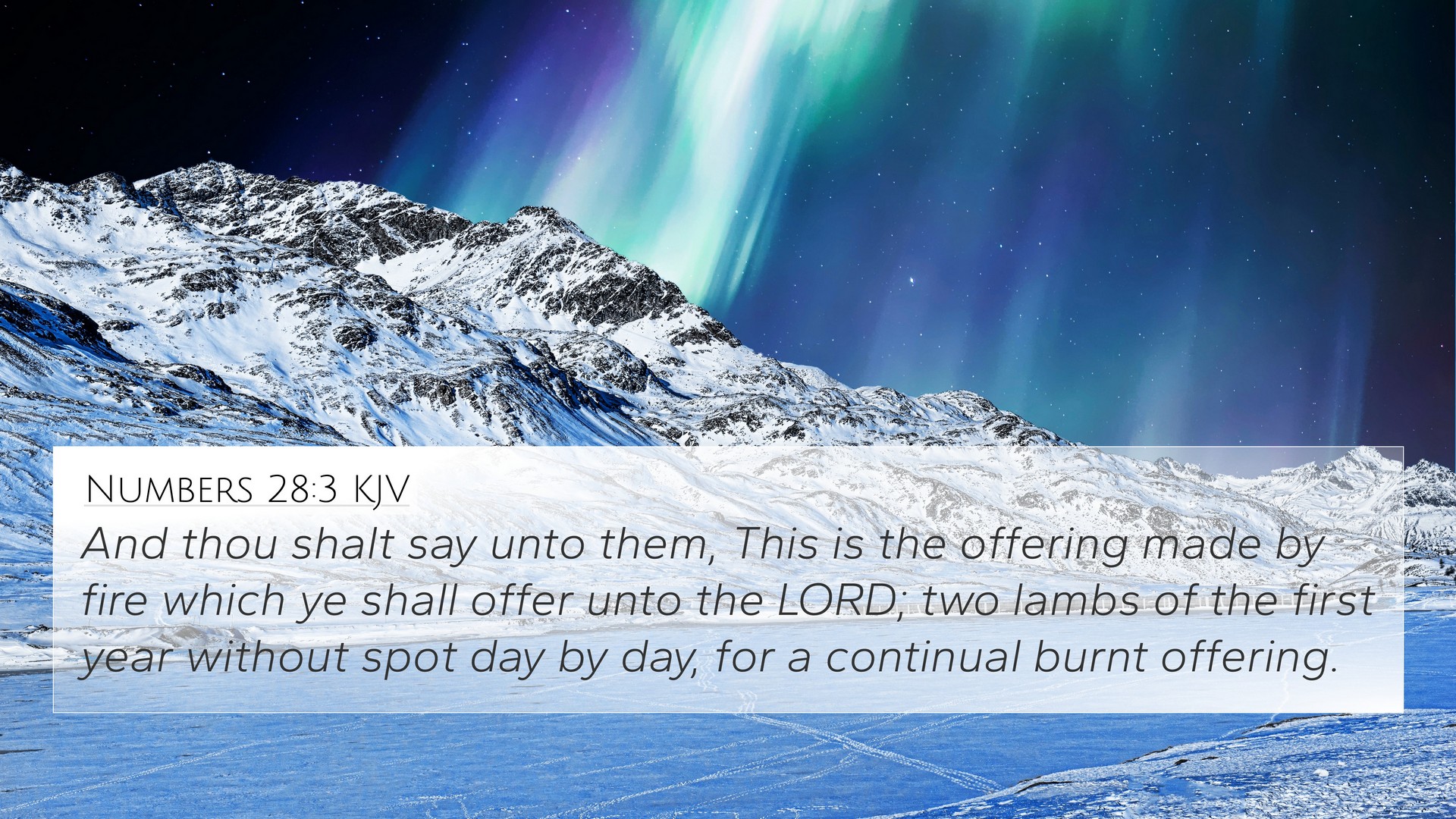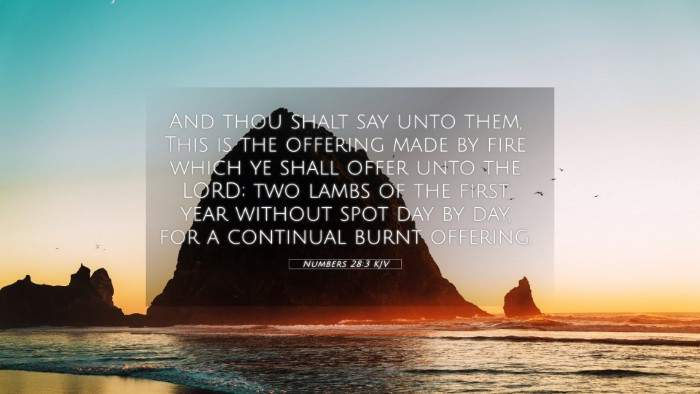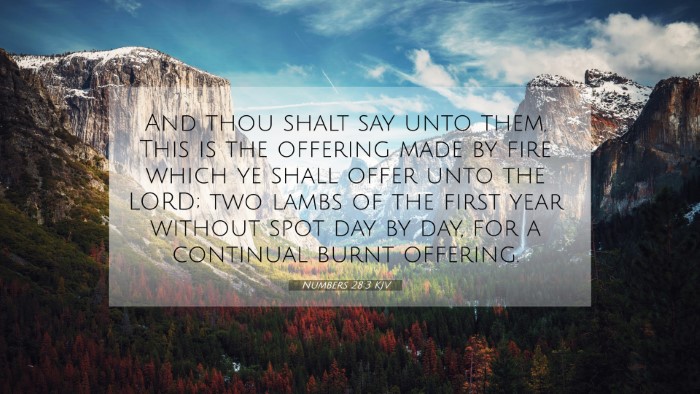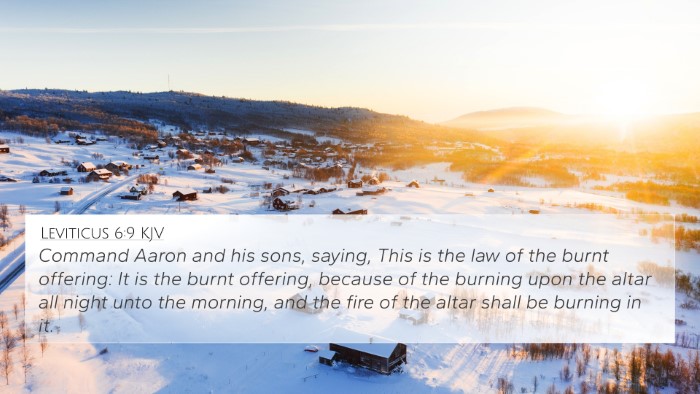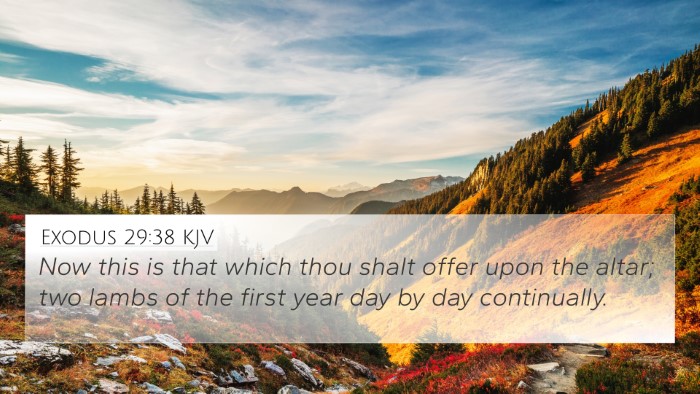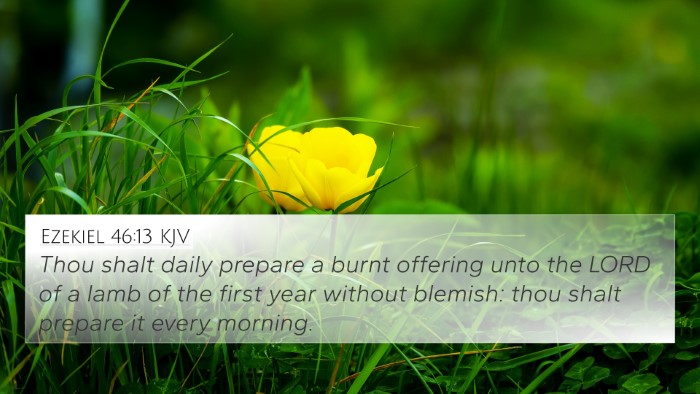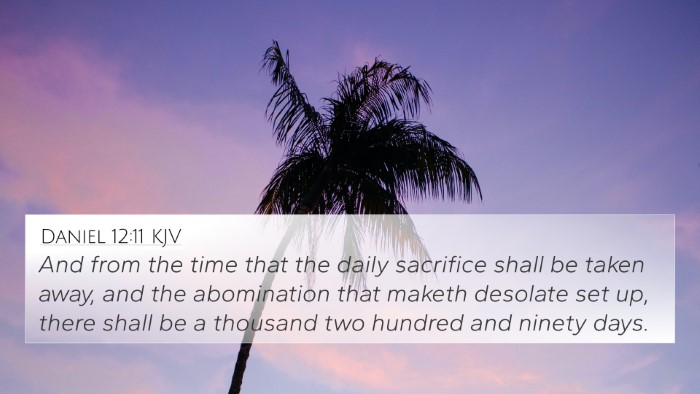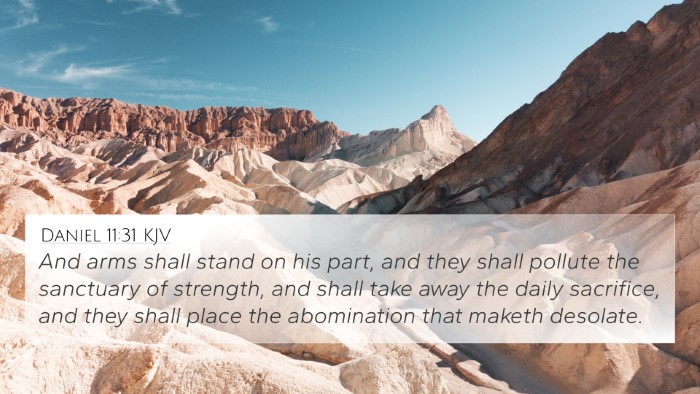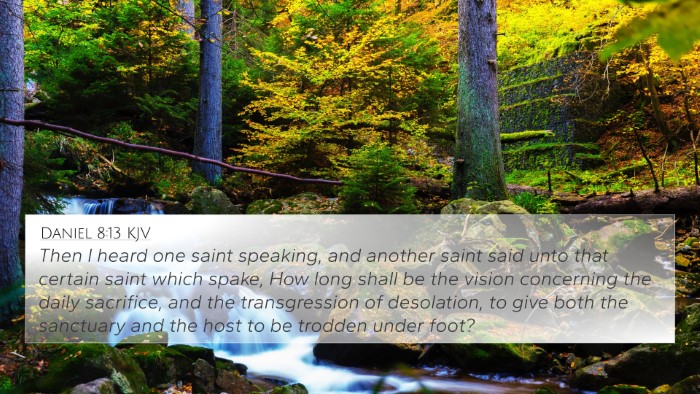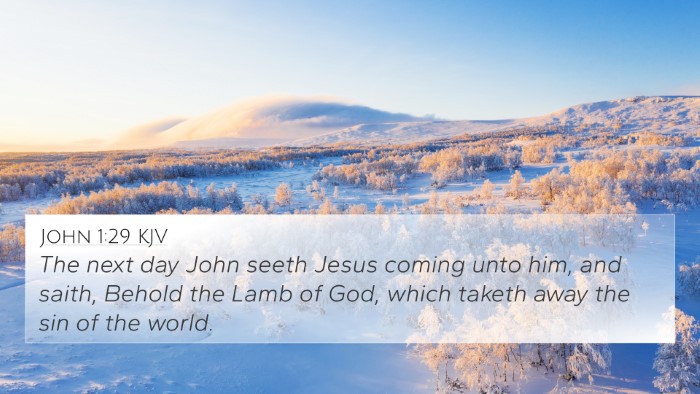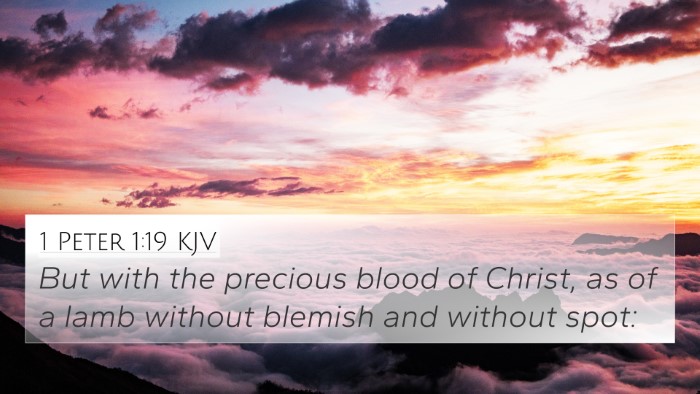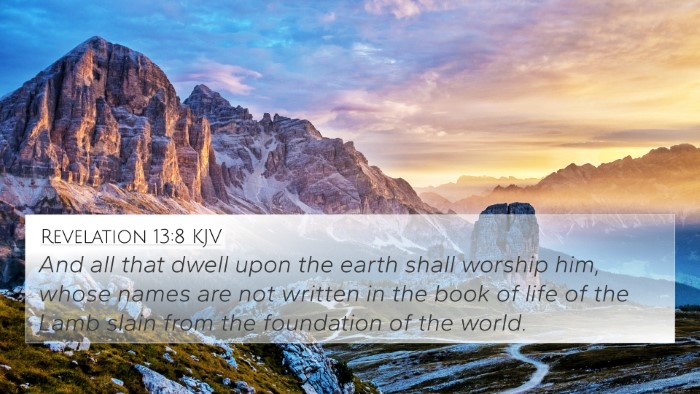Understanding Numbers 28:3
Verse: "And thou shalt say unto them, This is the offering made by fire which ye shall offer unto the LORD; two lambs of the first year without spot day by day, for a continual burnt offering." (Numbers 28:3)
Summary of the Verse
The verse from Numbers 28:3 serves as a directive regarding the sacrificial offerings to be made by the Israelites. It identifies the specific type of offering—a continual burnt offering of two lambs—emphasizing the importance of unblemished animals.
Interpretation from Commentaries
Matthew Henry's Commentary
Matthew Henry emphasizes the significance of regular sacrifices as a form of worship and fellowship with God. He notes that the two lambs symbolize the daily commitment of the people to God and their reliance on His provision and acceptance. The emphasis on a “continual” offering highlights the need for ongoing devotion, depicting how God deserves constant praise and acknowledgment.
Albert Barnes' Notes
Albert Barnes points out that this directive illustrates God's desire for His people to be in a perpetual state of worship. The choice of lambs as offerings indicates the innocence and sacrifice required in approaching God. Barnes also suggests that the notion of a "burnt offering" reflects total surrender to God, being consumed entirely in His presence, reinforcing the idea of complete devotion and acceptance of His will.
Adam Clarke's Commentary
Adam Clarke takes a more detailed approach by discussing the ceremonial aspects of the burnt offerings. He highlights that the use of lambs signifies purity and God's expectation of holiness from His people. Furthermore, he suggests that the daily aspect of this offering reminds believers of the need for daily repentance and renewal in their spiritual lives.
Cross-References and Thematic Connections
Understanding Numbers 28:3 benefits from exploring other biblical texts that provide insights into offerings and worship. Below are 10 related Bible verses:
- Exodus 29:38-42 - Establishes the daily burnt offerings and their significance.
- Leviticus 1:3-9 - Details the requirements for a burnt offering.
- Hebrews 10:1-4 - Discusses the insufficiency of animal sacrifices in comparison to Christ's ultimate sacrifice.
- Romans 12:1 - Encourages believers to present their bodies as living sacrifices, parallel to the concept of offering.
- Psalm 51:17 - Emphasizes that God desires a broken spirit rather than mere physical offerings.
- Malachi 1:11 - Addresses the call for pure offerings as a reflection of reverence to God.
- 1 Peter 1:19 - Relates Christ's sacrifice as the ultimate fulfillment of the Lamb without blemish.
- John 1:29 - Refers to Jesus as the Lamb of God, connecting Him to sacrificial themes.
- Leviticus 6:9-13 - Discusses the continual fire for burnt offerings, highlighting perpetual worship.
- Isaiah 53:7 - Prophesies the suffering servant, reinforcing the sacrificial theme in the context of atonement.
Conclusion
Numbers 28:3 reveals deep insights into the nature of worship, devotion, and God's expectations for His people. The continual offering emphasizes the necessity of constant remembrance of God's grace, purity, and the ultimate sacrifice of Jesus Christ that encompasses all previous forms of offering.
Cross-Referencing Tools and Methods
For those seeking further insights and techniques in cross-referencing Bible verses, consider the following resources:
- Use a Bible concordance to find words and their occurrences across different scriptures.
- Employ a Bible cross-reference guide to explore thematic and textual connections.
- Engage in cross-reference Bible study that intertwines various biblical themes.
- Utilize a Bible reference resource for deeper understanding of scriptural relationships.
